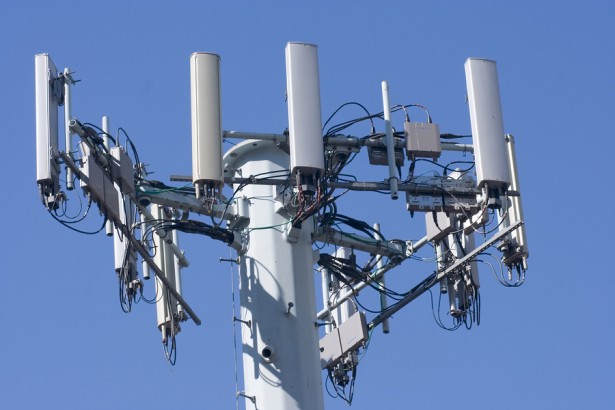America’s History With Cell Phone Interception
Most Americans have known for quite some time now that their cell phone messages, emails, and even some conversations were not necessarily as private as we once thought. In fact, we’ve sadly gotten used to the fact that cell phone carriers often make it easier for government agencies such as the NSA to not only intercept our cell phone interactions, but record and save them as well.
But now, according to Popular Science, a new threat to our privacy has emerged in the form of “mysterious phony cell towers” which could be intercepting our calls.

Fake Towers Enable Hackers to Hijack Your Phone’s OS
The report from Popular Science explains how a device known as the “CryptoPhone500” is marketed in the United States by ESD America and features high-powered encryption. The phone is made from a Samsung Galaxy III, and to the untrained eye, that is what it seems to be. However, “To show what the CryptoPhone can do that less expensive competitors cannot, (the creator points) to a map that he and his customers have created, indicating 17 different phony cell towers known as “interceptors,” detected by the CryptoPhone 500 around the United States during the month of July alone. Interceptors look to a typical phone like an ordinary tower. Once the phone connects with the interceptor, a variety of “over-the-air” attacks become possible, from eavesdropping on calls and texts to pushing spyware to the device.”
The CryptoPhone500’s creator, Lee Goldsmith also stated, “Interceptor use in the U.S. is much higher than people had anticipated,” Goldsmith says. “One of our customers took a road trip from Florida to North Carolina and he found 8 different interceptors on that trip. We even found one at South Point Casino in Las Vegas.” So Popular Science asks, “Who is running these interceptors and what are they doing with the calls?” Goldsmith answered that although we can’t be sure, he has his suspicions.
“What we find suspicious is that a lot of these interceptors are right on top of U.S. military bases. So we begin to wonder – are some of them U.S. government interceptors? Or are some of them Chinese interceptors?” says Goldsmith. “Whose interceptor is it? Who are they, that’s listening to calls around military bases? Is it just the U.S. military, or are they foreign governments doing it? The point is: we don’t really know whose they are.”
These Are Not Actual Physical Towers
As The Blaze explains, “A story has been taking the Internet by storm this week about an encrypted cellphone device that has uncovered 17 “fake” cell towers across America. There’s just one problem: the “towers” aren’t necessarily towers at all.” In fact, The Blaze has been reporting for some time on this type of technology and how our cell phones can be intercepted and hijacked.
A Blaze Intel and Tech Editor, from the American Civil Liberties Union’s Project on Speech, Privacy and Technology. In that interview from July, Wessler admits, “These devices are pieces of physical equipment that police use themselves to track cellphones. It works by mimicking cell service providers’ cellphone towers and then sending out electronic signals that force phones — really trick phones — into reporting back their identifying information, including their electronic serial numbers and their location. A good way to describe this is that old kids pool game: so the cell site simulator will say “Marco,” and your cellphone says “Polo.” The report goes on to explain that some of these devices are portable and some are fixed.
The Illusion of Privacy
Despite how absolutely appalled that Americans should be that their privacy is being intruded upon in this way, it is very doubtful that this will cause that much of a public outcry. The simple truth is that, because of Facebook, Twitter, and the whole deal with the NSA, Americans have become complacent with having their whole lives “out there” for everyone to see/read. Almost every time a Facebook user logs in they are made aware of yet another privacy issue and yet we continue to sign in and post our lives.
Each time a cell phone user downloads an app, they click “accept” to paragraphs of words giving up pieces of their privacy, and yet they click just to get to play that game, check the weather, or use that social media app. We have let our desire to connect via social media let us share far too much, and our fear of terrorism allow us to stand by while government agencies delve into our private lives. Where will we draw the line?



